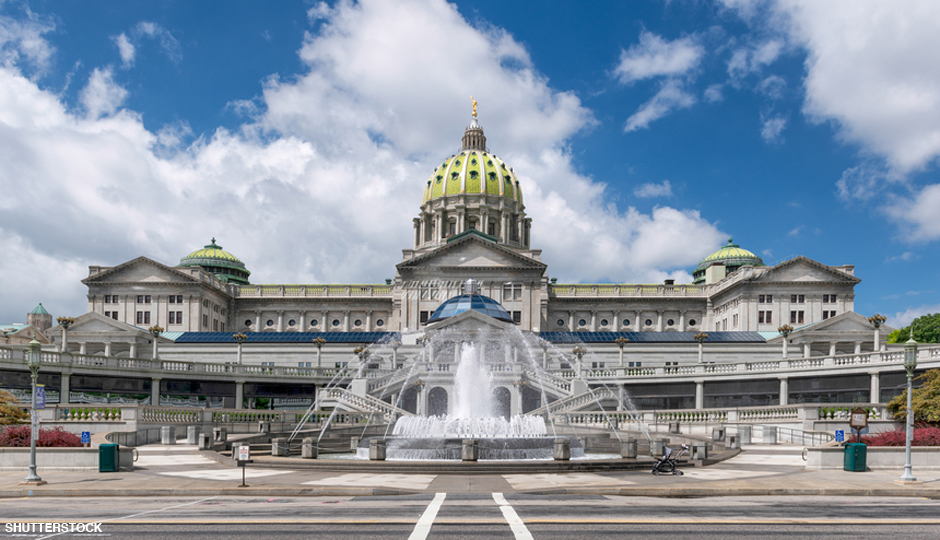Would Bill to Shrink PA State Legislature Lead to a Wild GOP Gerrymandering Party?
Last week, the House State Government Committee passed a bill introduced by speaker of the house Sam Smith (R-Jefferson) that would chop the size of the House by 50 members, predictably voting 18-7 along party lines.
These proposals aren’t new—in fact, they’re about as old as the 1872 Constitutional Convention that doubled the Pennsylvania legislature to its current size. Since then, one of the easiest ways for state politicians to curry favor is with a loudly pronounced self-loathing in which they admit that they belong to a bloated government—which ranks second in total number of legislators, number per capita and salary ($83,800)—that ought to be shrunk.
The most recent attempt came last year when Smith introduced a bill that would shrink both houses. The bill died in the Senate. But this time, HB1234 proposes to only shrink the House, thus giving it more of a fighting chance once it reaches its smaller and, as we’ve seen, more moderate arm of the legislature. (A companion bill that would also shrink the Senate passed the committee. It is likely DOA.)
“We thought it would be a better strategy to have two bills,” says Rep. Daryl Metcalfe (R-Butler). “One reduces the Senate, one reduces the House. The senate shouldn’t have much of an objection [if it’s] supported by the chamber which it impacts.”
“In theory, I definitely support the shrinking of the legislature if only because Pennsylvanians say they want a smaller legislature,” says Rep. Brian Sims (D-Philadelphia), who sits on the committee and voted against the bill. “The problem obviously was in the details.”
Those details include Republicans voting down a proposed amendment that would have prohibited “the division or formation of a district for political advantage.” If the bill actually became law—and to do that, it has to complete the treacherous uphill battle of constitutional amendment, requiring passage in two consecutive legislative sessions and a ballot vote by voters—legislative districts would have to be redrawn, leading to what could amount to a gerrymandering free-for-all in partisan hands. And with two houses of the legislature controlled by Republicans and a Republican executive, that’s the scenario.
“If the Democratic chair [Rep. Mark Cohen (D-Philadelphia)] was really interested in having an amendment adopted, he would have reached across the aisle and talked with us before the meeting, which he didn’t,” says Metcalfe. “You want to improve a bill, you reach across the aisle, you talk to the sponsor, talk to the members on the other side of the aisle, and you find agreement on this.”
Cohen called the bill “a clear power grab by the Republican party” and says the actual savings that the bill would produce—$8-10 million out of a roughly $30 billion budget—sound gestural. In response to Metcalfe, he says: “[The amendments] were put on in normal practice. Representative Metcalfe has almost never accepted a Democratic amendment.”
Metcalfe’s response is one of the common ironies of today’s era of hyperpartisanship: The rejection of an amendment meant to moderate a potentially lopsidedlbill (and what other reasonable perspective on the bill remains after voting down the moderating amendment) was due the other side’s insufficient bipartisanship.
Still, HB1234 might have the greater fighting chance because of Republican domination of state government, the splitting of the two bills, and the overall loathing of Harrisburg—“You can get rid of us!” is an easy populist appeal.
“The outcome is uncertain once it gets in the voters’ hands,” says Ellen Kaplan, policy director of the Committee of Seventy. “With government getting such low marks in public confidence, though, the voters might decide to do away with an elected General Assembly altogether.”
“Just kidding on that one,” she adds.



